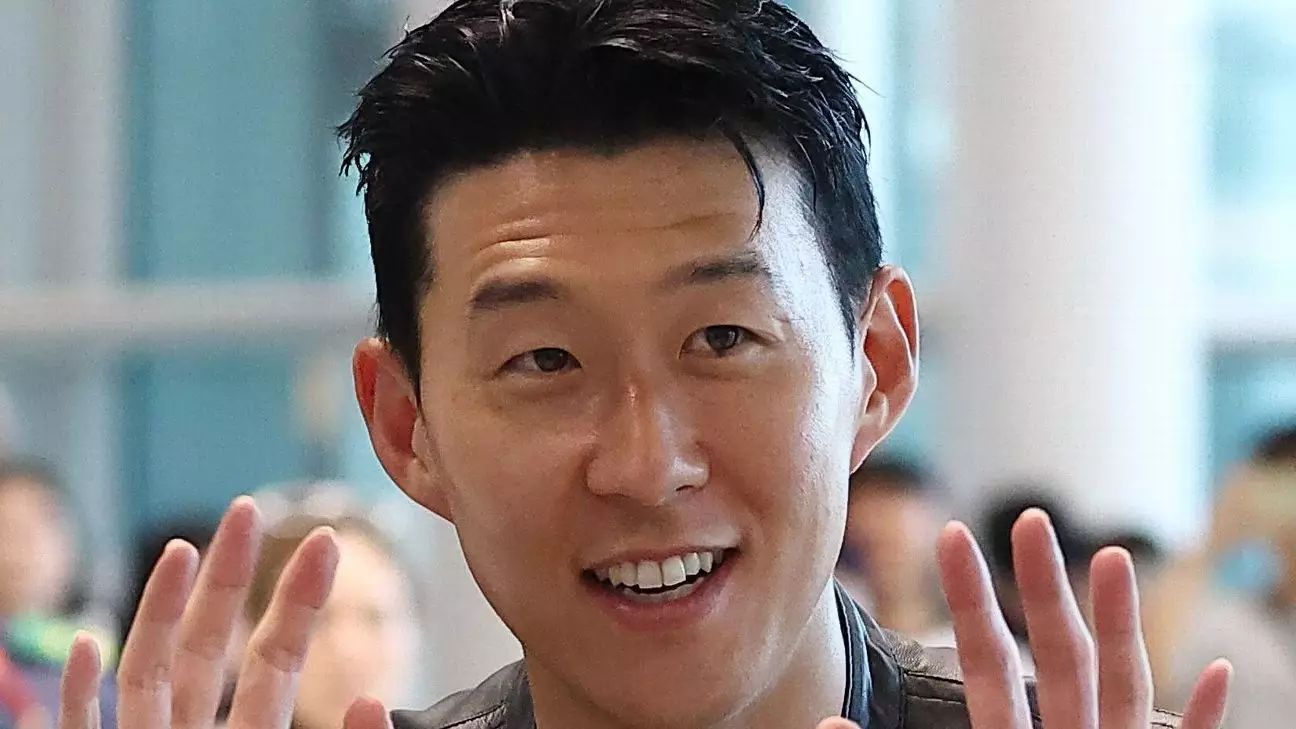Son Heung-Min’s transition from Tottenham Hotspur to LAFC isn’t merely a transfer; it symbolizes a larger shift in the landscape of international soccer. For years, players from Asia and other regions have either shunned the North American leagues or played their roles in the shadows of European giants. Son’s move challenges that paradigm, signaling a recognition of Major League Soccer’s rising prominence and the city of Los Angeles as a global hub for talent and influence. Such a high-profile move by a league superstar demonstrates MLS’s increasing ambition to attract top-tier talent, not just for immediate on-field success but to elevate the league’s global appeal. This is a rare instance where a player with Son’s pedigree chooses to pivot toward the U.S., suggesting a strategic growth phase for North American soccer. It’s a vote of confidence that the league is no longer a secondary destination but a competitive and lucrative frontier for world-class talent.
More Than a Player: A Cultural and Market Catalyst
Son’s arrival in Los Angeles extends far beyond the pitch. LA, with its vibrant Koreatown and significant ethnic Korean population, is ripe for a cultural renaissance catalyzed by a player of his stature. The city’s demographics and cultural landscape provide a fertile environment for Son to grow his brand, influence, and off-field pursuits. Historically, the success of sports stars like Shohei Ohtani in Los Angeles underscores the city’s potential as a magnet for Asian sports icons. While Son may not reach Ohtani’s level of cross-sport popularity immediately, his presence deepens the city’s identity as an Asian sports nexus. It’s clear the club and city are betting on Son’s star power to ignite fan engagement, attract sponsors, and even bridge cultural divides. The move embodies a broader vision: to turn LA into a multicultural melting pot where soccer’s global stars can thrive both professionally and commercially.
The Financial Stakes and Cultural Significance
The reported transfer fee of approximately $26 million isn’t just a record for LAFC; it’s a statement of intent. It signifies that MLS clubs are willing to invest seriously in acquiring marquee players, recognizing that talent on its own isn’t enough—they need the star power that drives viewership and sponsorships. The financial implications are profound: this investment could redefine the economics of MLS, encouraging more clubs to prioritize signing world-class players. Moreover, it raises questions about the league’s long-term strategy: can MLS emulate the cultural dominance seen in Japan or South Korea, where local stars and international icons coexist to elevate national sporting identity? Son’s move also underlines a strategic positioning for the 2026 World Cup hosted across North America, with Los Angeles as a centerpiece. As captain of South Korea’s national team, Son’s presence will be instrumental in engaging Asian markets and elevating the tournament’s global prestige.
Revitalizing the Soccer Narrative in Los Angeles
Son’s debut at LAFC isn’t just a transfer; it’s a cultural phenomenon that could reshape how soccer is perceived in one of the world’s most influential cities. LA has historically been a city with a complex sports identity—dominated by basketball, baseball, and American football—but it’s been craving a genuine football revolution. Son’s arrival promises to animate the local scene, energize youth participation, and push the sport into mainstream consciousness. In many ways, Son’s narrative at Spurs, marked by heartfelt appreciation and connection with fans, mirrors what LA’s soccer community hopes to achieve: a sense of belonging and pride rooted in genuine excellence and cultural relevance. If Son can replicate his success on the field and become a beloved figure off it, he could serve as the catalyst that finally elevates LAFC and the broader MLS to new heights—an inspiring story of talent, ambition, and cultural integration.
Beyond Boundaries: The Global Impact of Son’s Move
This transfer signals a new era where cultural diplomacy and sports intertwine. Son Heung-Min’s decision impacts not just Los Angeles or MLS but the global perception of Asian athletes and their role in worldwide sports narratives. It highlights how players are increasingly viewed as global brands capable of transcending league boundaries, regional loyalties, and national identities. For Son, this is a chance to become a pioneering figure—lyrical in his play but formidable as a cultural ambassador. His impending presence in North America could pave the way for future Asian stars, creating a blueprint for other talents contemplating similar paths. Moreover, it emphasizes the shifting landscape of global football, where the boundaries between Europe, Asia, and North America are blurring, and where players like Son can truly shape the sport’s future.
This move is more than a career transition for Son Heung-Min; it’s a statement of bold intent, an assertion that soccer’s future lies in embracing global diversity while reimagining the pathways to greatness. As LAFC prepares to unveil their new star, the world should watch with anticipation—not just for the goals he will score but for the cultural bridges he will build and the legacy he will leave behind.


Leave a Reply